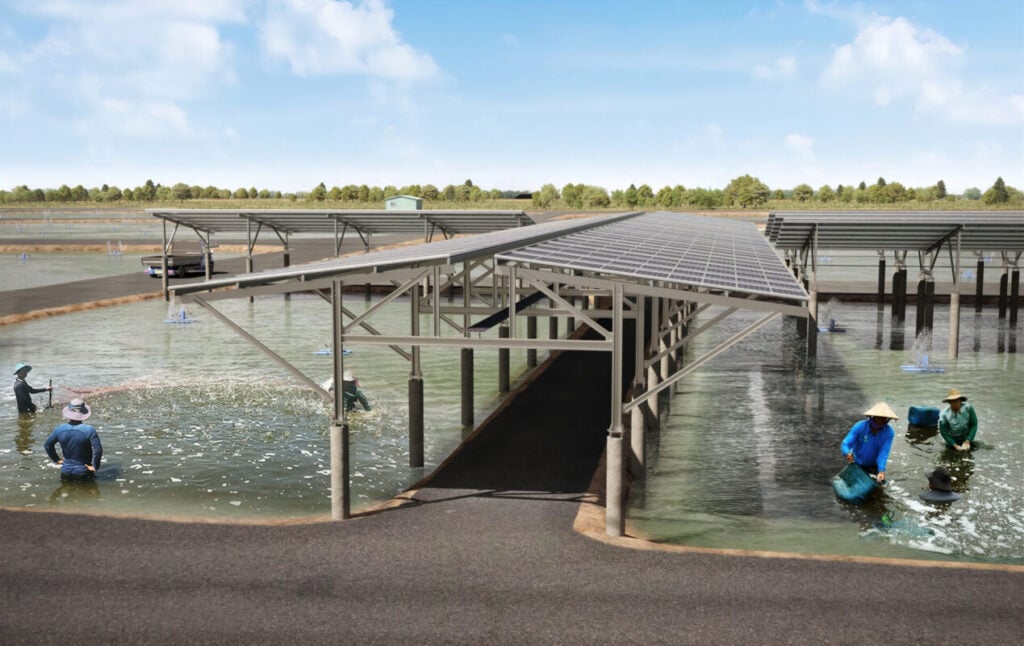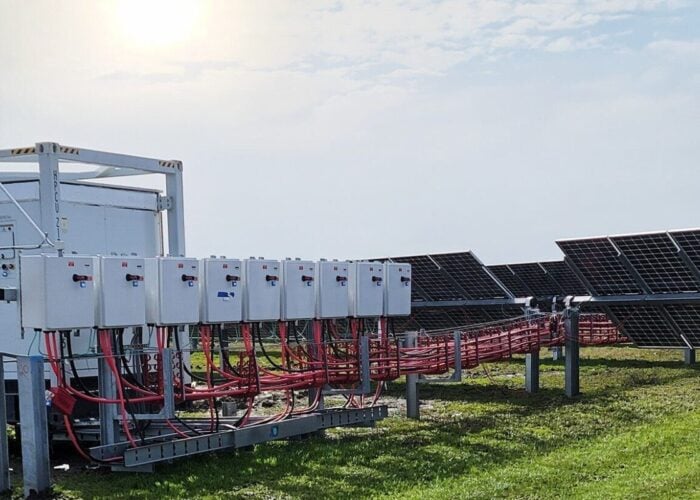
Solar developer Lightsource bp has signed a power purchase agreement (PPA) with a subsidiary of Taiwanese energy firm HD Renewable Energy (HDRE).
The deal is Lightsource’s first in Taiwan and covers 100% of the power produced at its 115MW Budai solar PV project. The other signatory, HDRE’s subsidiary Star Trade, is a Taiwanese renewable energy retailer and supplier to the commercial and indsturial sectors.
Try Premium for just $1
- Full premium access for the first month at only $1
- Converts to an annual rate after 30 days unless cancelled
- Cancel anytime during the trial period
Premium Benefits
- Expert industry analysis and interviews
- Digital access to PV Tech Power journal
- Exclusive event discounts
Or get the full Premium subscription right away
Or continue reading this article for free
The Budai project is a pilot solar-fisheries site, where modules are installed above and between fish farming operations. Lightsource said the model is particularly beneficial to the Budai region of Taiwan, which is known for fish farming. The modules, which are mounted on solid ground between the fisheries, can provide shade and shelter for fish while not impeding the farmers’ work and maximising the profitability of the land.
Lightsource secured TWD6 billion (US$206 million) in financing for the project earlier this month from a consortium of “local and international banks”. Construction of Budai is underway and expected to be complete in 2026.
Melanie Sutton, director of power markets APAC at Lightsource bp said the deal: “Strengthens our position in Asia Pacific’s evolving energy markets. Project Budai is not only about advancing utility-scale solar – it demonstrates how Lightsource bp is leveraging market intelligence and commercial innovation to adapt, optimise and grow.”
Lightsource said it will see its pipeline “grow and diversify across the region”.
Earlier this year, the company’s owner, fossil fuel giant bp, announced plans to divest its interests in Lightsource as part of what some perceived as a broader retreat from renewable energy.
Industry experts suggested the move could face legal challenges and an analyst speaking to PV Tech Premium said the oil giant was “responding to short-term shareholder pressure” at the expense of long-term vision.






